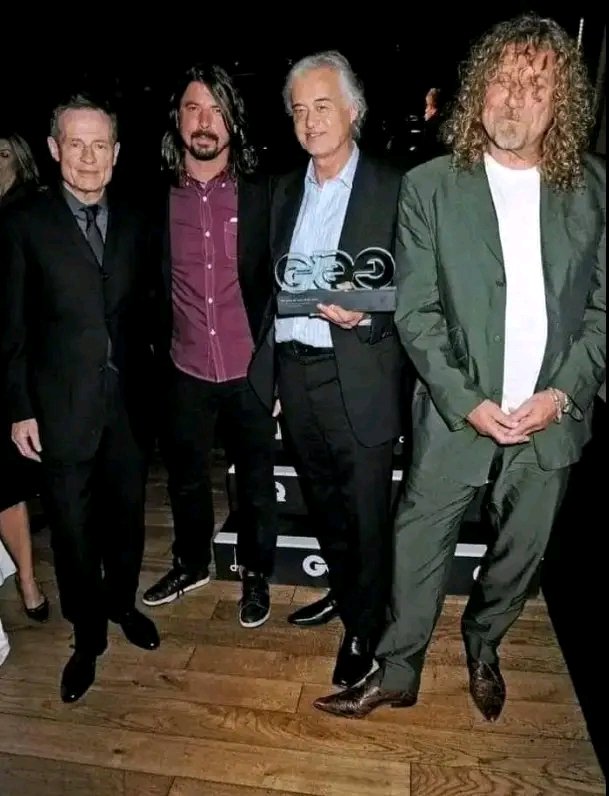“When Legends Collide: The Night Foo Fighters Resurrected Led Zeppelin’s Spirit at Wembley Stadium in a Thunderous Rock and Roll Reunion”
In June 2008, a moment etched itself into the annals of rock history—an explosive meeting of eras, sounds, and souls. Wembley Stadium, packed to the rafters, trembled under the weight of expectation as Foo Fighters took the stage for the second of two sold-out nights. But few could have predicted the seismic surprise that awaited: the arrival of Led Zeppelin icons Jimmy Page and John Paul Jones for an encore that would turn a memorable concert into a legendary event. Though Robert Plant was absent, the essence of Led Zeppelin was vividly resurrected, electrifying an audience that knew they were witnessing something extraordinary.
The moment Dave Grohl introduced Page and Jones, the atmosphere shifted from ecstatic to near-mythical. This wasn’t a mere guest appearance—it was a ceremonial passing of the torch. Grohl, clearly humbled and elated, took on vocals for “Ramble On,” embracing Plant’s original spirit without imitation. His voice carried a different edge—gritty, reverent, and honest. Jimmy Page, with his unmistakable tone and controlled chaos, reignited the song’s magic while John Paul Jones anchored the performance with the same soulful precision that once held Zeppelin together. It wasn’t nostalgia; it was rebirth.
Then came the unexpected twist that elevated the night even further—“Rock and Roll,” with Taylor Hawkins stepping out from behind the kit to take lead vocals, while Grohl slid back into his natural habitat on drums. The reversal was pure energy, and the synergy between generations was complete. Hawkins, with uncontainable passion, honored Plant’s vocal fire as Grohl pounded the drums like Bonham reborn. Page and Jones, smiling and locked in, responded with blistering power and joyful groove, proving that true legends never fade—they adapt, evolve, and shine even brighter when surrounded by worthy heirs.
For Grohl and Hawkins, this wasn’t just collaboration—it was culmination. Both had grown up worshipping Zeppelin, and now stood side-by-side with two of its architects, not as fans, but as equals for one shining moment. The performance wasn’t just technically flawless—it was emotionally seismic. That night, Wembley didn’t just host a concert; it hosted a resurrection, a generational communion where the gods of classic rock met their fiery successors in a thunderous celebration of everything that makes rock ‘n’ roll eternal.
